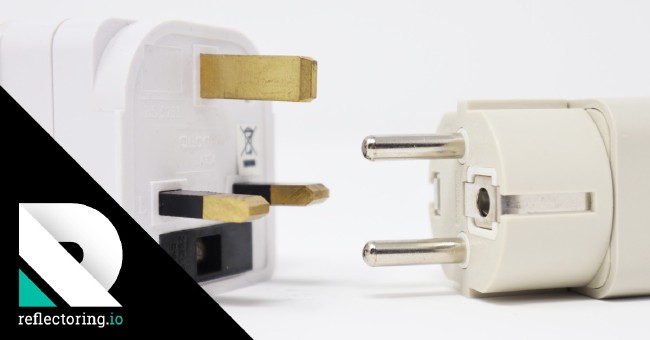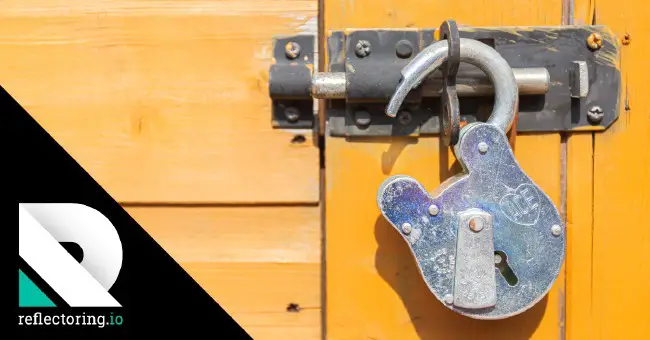TL;DR: Read this Book, when…
- you are interested in how habits work in individuals, organizations, and societies
- you want to trigger some self-reflection on your habits
- you enjoy real-life stories that read like a novel
Overview
Similar to The 7 Habits of Highly Effective People, I read {% include book-link.html book=“power-of-habit” %} in my quest for self-improvement, efficiency, and effectivity.
While “The 7 Habits” concentrates more on interpersonal relations and the mindset to be effective in life, “The Power of Habit” by Charles Duhigg explains what habits are, how they develop and how they can be changed.
The book is divided into three parts with a couple of chapters each. The first part discusses the term “habit” as we usually understand it: as a habit of an individual. Duhigg doesn’t stop with individual habits, though, but goes on to discuss organizational habits in the second part and the habits of society in the third part.
Likes & Dislikes
Reading the book almost feels like reading a novel. Each chapter tells one or two (real) stories that drive the topic, written with suspense. Embedded within those stories are the well-researched scientific facts behind our habits.
The explanations are comprehensible enough to satisfy my engineer’s need for logic. Every fact in the book is based on interviews the author conducted with scientists, entrepreneurs, medical doctors, patients, and more.
The above makes the book very digestible and a very accessible and interesting read … I have nothing to add to the “dislike” side.
Key Takeaways
Here are my notes from reading the book ….
The Habit Loop
- changing a single “keystone habit” can have a great effect on other habits as well
- the outer brain is responsible for conscious thought while the central brain is responsible for automatic behavior like habits
- the more often we do something the less brain activity is needed to do it
- even people who have lost the ability of conscious remembering can find their way home from a regular walk
- the habit loop consists of a cue, a routine, and a reward
- the brain shuts down during the routine
The Craving Brain
- habits induce a craving for the reward - making us stick with the routine until the craving is satisfied
- to create a habit, we need to cultivate a craving to drive the habit loop - such a craving may even be a mild obsession
- brushing teeth only became a habit for half the world population after the producers added an ingredient that added the fresh and cool feeling - people soon craved this feeling
The Golden Rule of Habit Change
- habits are there to stay - they cannot be removed, but they can be changed
- to change a habit, have to identify the cue and replace the routine - the reward should stay in place or be replaced with a similar reward
- successfully broken habits can return after a stressful event
- believing that change is possible or believing in some higher power can help to overcome such stressful events without falling back into old routines - this is easier in a community than alone
Keystone Habits
- a keystone habit is a person’s or organization’s habit that, when changed, triggers many other habits
- organizational processes act like habits with cue, routine, and reward
- physical exercise is a keystone habit for many people as they also change their eating habits and smoke less
- a “small win” often indirectly paves the way for other small wins, ultimately leading to bigger change
- grit - the ability to stick to something despite drawbacks - is more if a success factor than high grades or physical fitness
- the habits of an organization make up its culture
Starbuck’s Habit of Success
- willpower is the single most important keystone habit for individuals
- self-discipline has a bigger effect on academic success than intellect
- Starbucks teaches their baristas self-discipline to create a more comfortable environment for the customers
- willpower is learnable but can be depleted after using a lot of it
- willpower can be trained by deliberately planning cues, routines, and rewards
- training willpower improves many other habits like healthy eating, smoking, and exercising
- giving people control instead of commands greatly improves their capability for willpower (software engineering note: this is a central idea of the agile manifesto with its focus on individuals and interactions over processes and tools)
The Power of a Crisis
- bad institutional habits (like an environment of arrogant doctors in a hospital) can lead to disaster (like surgery on the wrong side of the brain)
- organizations are guided by habits even if it seems they are making rational choices
- habits reduce uncertainty
- during a crisis, habits become malleable to change (software engineering note: if something went wrong in a project, a retrospective may help to change the habits that lead to the problems)
- Quote by Rahm Emanuel (Obama’s Chief of Staff): “You never let a crisis go to waste”
- publicly speaking about errors is a way to change habits
- habits within an organization create truces between divisions - often, though, these truces prevent opportunities
How Target Knows What You Want Before You Do
- similar to crises, major life events are facilitators for habit change
- to change a habit, the new routine must be as similar as possible to the old one
- sandwich new habits between old habits to improve the chances of adoptions - radio DJs sandwiched new songs between known hits to make them successful
Saddleback Church and the Montgomery Bus Boycott
- a movement starts because of social habits and strong personal ties - like the social ties of Rosa Parks after she refused to vacate a seat in a bus for a white man
- a movement grows because of the habits of a community (weak personal ties)
- a movement endures because of leaders give the participants new habits (like Martin Luther King did)
- friendship triggers a social habit of support when a friend is attacked
- peer pressure triggers social habits that encourage us to conform to group behavior - even if the group only consists of “weak tie”-acquaintances
The Neurology of Free Will
- habits can become so strong that they overpower free will - for instance, gambling or drinking
- people with brain damage may lose some of their free will - this may look very similar to people with strong habits
- a man who murdered his wife while in a sleep terror - a form of sleepwalking, which is automatic behavior similar to a habit - because he wanted to defend her against imaginary attackers was exonerated
- a woman with a bad gambling habit became indebted to the casino that abused this habit was successfully sued by that casino
- it’s easier to sympathize with a devastated widower who killed his wife while sleepwalking than with a housewife who gambled her family’s money - to society, this seems fair since the widower wasn’t aware of his habits while the gambling woman was
- habits can only be modified if we’re aware of them
- the most important ingredient to changing habits is the habit of believing that we can change
A Reader’s Guide to Using These Ideas
- identify the routine
- experiment with rewards
- consciously switch the reward with something else and track results for a couple of days
- find out which rewards satisfy the craving
- then find out which craving it is that drives the habit
- isolate the cue
- identify the cue by asking questions each time the habit strikes
- where am I?
- what time is it?
- what’s my emotional state?
- who else is around?
- …
- after a couple of days you may find out what cue is starting the habit by combining the answers to those questions
- have a plan
- write down a plan to change the habit
Conclusion
If you’re interested in what makes us tick and how to change it, {% include book-link.html book=“power-of-habit” %} is a very good starting point to dive into the topic.
It’s well-researched, well-written, easily digestible and gets my unconditional reading recommendation (well, with the one condition that you should be interested in the topic of habits…).



